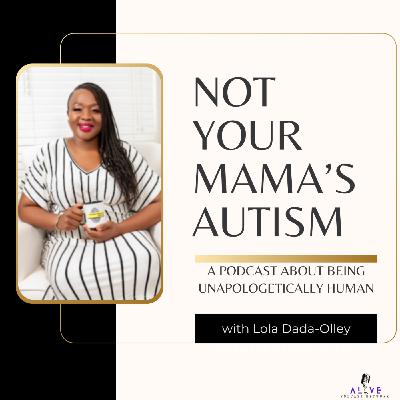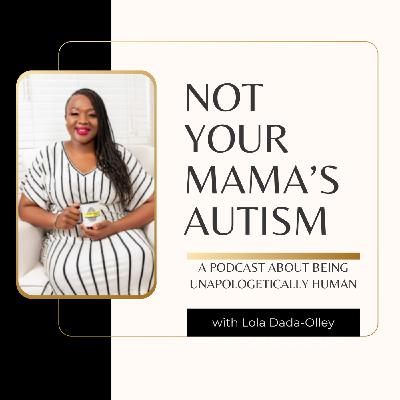Serving Families in Crisis: A Conversation with Breanna Kelly-Higgs LCSW, BCBA
Update: 2025-02-01
Description
Summary
Breanna Kelly, a licensed social worker and BCBA, shares her journey into the field of autism and her passion for supporting individuals with co-occurring conditions. She emphasizes the importance of understanding and acknowledging the experiences and needs of individuals with disabilities, as well as the significance of cultural competence in providing effective care. Breanna discusses the challenges within the medical system and the need for collaboration and holistic approaches to support individuals with autism and mental health needs. She also highlights the importance of caregiver training and empowerment. Overall, Breanna advocates for systemic changes and increased resources to improve the lives of individuals with autism and co-occurring conditions.
Takeaways
Understanding and acknowledging the experiences and needs of individuals with disabilities is crucial in providing effective care.
Cultural competence and relevance are important in supporting individuals from diverse backgrounds.
The medical system needs reform to better support individuals with co-occurring conditions.
Caregiver training and empowerment are essential in helping families navigate the challenges of raising a child with autism.
Collaboration and holistic approaches are needed to provide comprehensive care for individuals with autism and mental health needs.
Increased resources and systemic changes are necessary to improve the lives of individuals with autism and co-occurring conditions.
Chapters
00:00 Introduction and Background
02:01 Personal Connection and Early Experiences
08:49 Challenges within the Medical System
12:02 Cultural Competence and Trauma-Informed Care
19:00 Empowering Caregivers through Training
23:33 Meeting Caregivers Where They Are
30:16 Supporting Families and Building Relationships
34:05 Reforming the Medical System
41:38 Connecting with Others and Finding Resources
Transcript
Lola Dada-Olley (00:02 )
Brianna Kelly, thank you. Thank you so much for visiting us today on the Not Your Mama's Autism Podcast.
Breanna (00:11 )
Thank you for having me. I'm excited.
Lola Dada-Olley (00:16 )
Me too, me too. I just know you're going to drop the nuggets. The nuggets shall have nuggets. So with that in mind, let's learn a little bit more about you. So you are a true multi -hyphenate. You are a licensed social worker. You're a BCBA. Those not familiar with the term, board certified behavior analyst, and the owner in your spare time of synergy behavioral consulting.
Synergy behavioral consulting. But before we get to all these wonderful things, like what you're currently doing now, let's start, let's go back a little bit. Let's start from the beginning. What made you enter this field? Like, do you have a personal connection?
Breanna (00:46 )
Yeah.
So it goes back to the early 2000s. And so I was in high school and a freshman in high school actually, and I got invited over to this party that this Christian club was having at my school. And it was at an attached school, which I now know was an alternative school. And it had kids with severely profound, severe and profound disabilities, quote unquote behaviors. There were
pregnant girls. at that time, this was scary to me because we would only see these individuals like in between classes. And I went over there and the cha -cha slide, I think was out around that time. And we had the best time ever. Like doing the cha -cha slide, doing all the dances. And I will never forget, cause I was so fearful going over there. Like I just, didn't, I didn't know what to expect.
wow, these people are just like me. And it was the bond within the cha -cha slides and all the dances. I was like, these people are just like me. Why was I scared? And that was the catalyst for me. And so I then joined an organization called Best Buddies, which is an international organization that partners at all levels, middle school, high school, college.
individuals with intellectual disabilities with peers and we do all these activities. And so I joined that organization. I did that all through high school, went to college. didn't have a chat where we had a chapter, but it wasn't active and I lived it. I was like a college nonprofit person. had, we partnered with a nearby school. And now I think about it. I don't know if we have a school here like that,
It was specifically, I think, like kindergarten through 12th grade of kids, disabled kids. They had a post -secondary. Yeah, Tampa. I'm from Tampa. I went to school at Tallahassee. So I was, you know, small college town and I was like, this is what I want to do. Like I woke up every day. I mean, I was in college. I did the school thing, but this was my
Lola Dada-Olley (03:03 )
Where did you grow up? You live in Georgia now, right? Okay, Tampa,
Breanna (03:24 )
So I wanted to be a doctor and like halfway through I was like, this is not what I wanna do. I wanna support these individuals and that led me to social work. And in college are really cool. We had a cool assignment. So this is my personal connection. We had to interview like an elder. I interviewed my great grandmother, my grandmother's mother and learned that my great uncle,
And back then they had a lot of kids. They had a lot of kids. And was the whole that she raised them by herself. And she had a set of twins. And my Uncle Kenny has cerebral palsy. He probably would have been diagnosed with lots of other things now. He was taken from her. So the state tricked her into signing over her rights. And he was put in an institution.
So this was 50s maybe. And she told me how they stole him back. And when I heard this story, I was like, okay, God, this is what you want me to do. This is why I'm here. And so she talks about him being in the floor and feces and they had to break him out and she had to fight. There was legal fights. And I just knew, I was like, this is what I'm supposed to be doing. So that led to social work.
Yeah, so that's kind of the origin story. And I just keep getting these signs that I'm where I'm supposed to be, if that makes sense. Yeah, and now I have lots of personal connections, family members who are autistic or have different disabilities. My mother had a pretty, who passed away about 10 years ago, profound medical disability as well. And so it's kind of
Lola Dada-Olley (04:58 )
Absolutely.
Breanna (05:17 )
been where I
Lola Dada-Olley (05:23 )
Wow, that story about you're literally your elders. It's the generational story that you have.
Breanna (05:34 )
Mm -hmm. And it keeps coming up. So that's how I know it's not, you know, it wasn't a choice. I don't think I have a choice. I'm in a transition phase right now, but I know where I will be. I just don't know what it'll look like. So we'll see. I'm excited to see what's next.
Lola Dada-Olley (05:54 )
Yeah, put a pin in that because that's very intriguing. Let's kind of walk through. So you have a graduate degree. And so when you were studying your graduate and your graduate program, what were you focused on? What was your specialization? And is it at all linked to what your focus is
Breanna (05:57 )
Yeah.
Yeah, so I came to Georgia specifically for macro based social work. So systems levels change, organizational nonprofit, and that was as a result of the work I did with that organization in college. So I intended to be doing that nonprofit work. Like that's what I thought I would be doing. And then I just ended up in different unique spaces. I'm a graduate of the LEND program.
which is leadership, education, and neural developmental disabilities training program. And so that totally shifted my perspective. And it's an interdisciplinary cohort. Your colleagues are professionals. They're people with lived experience. That changed my trajectory. And then I started working for the university. And so I got to do all this traveling and training, and I loved that. And then transition to crisis services, which I never
thought I never thought I would be there, but we were serving people in the most vulnerable spaces, like for someone to have to call for emergency help or, you know, to be at a point where they can't support their loved one. And so that kind of shaped that for me. And it's not something that I thought I would be doing, but being in those spaces got me to understand some of the challenges of our systems.
Lola Dada-Olley (07:40 )
So when you say crisis int
Comments
In Channel















